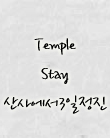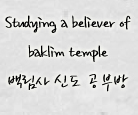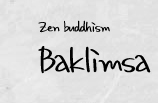만일 그가 어떤 사건을 임의로 판결한다면_?xml_:namespace prefix = o ns = "urn:schemas-microsoft-com:office:office" />
그는 옳은 판사가 아니다.
지혜로운 사람이라면 어느 것이 옳고 그른지를
깊이 생각한 다음 판결해야 한다.
지혜로운 사람은 임의로 판결하지 않는다
법이 규정한 바에 따라 판결하는 사람을
법의 보호자라 하며
법에 머무는 사람이라 부른다.
256, 257. A man is not just if he carries a matter by violence;
no, he who distinguishes both right and wrong,
who is learned and leads others, not by violence,
but by law and equity,
and who is guarded by the law and intelligent, he is called just.


















